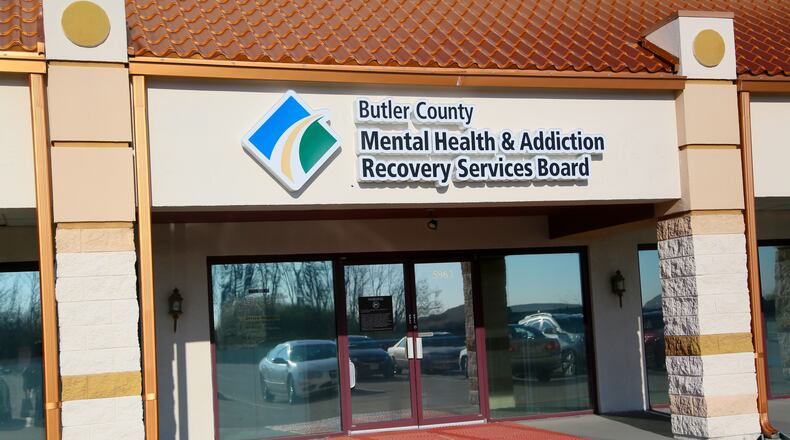Scott Rasmus, executive director of the Mental Health and Addiction Recovery Services Board (MHARS), said he is hoping the commissioners will grant his board some of the money for an emergency mental health crisis stabilization center.
The center would be a place where police and family members can take people with severe mental illness who are having an episode, rather than to jail, where many end up now. Rhonda Benson, director of the county’s National Alliance on Mental Illness chapter, said this type of facility has been sorely needed for years.
“There’s that gray area there where they’re really too sick to be on their own at home but they’re not sick enough to get them in anywhere,” Benson said. “It would benefit not just the police but anybody can drop somebody off and they just help stabilize them and identify what type services they need.”
Rasmus, Benson and others visited a similar center in Lima several years ago. Rasmus developed a rough estimate based on the Lima center, and a 10-bed facility would cost about $1 million to create and another $1 million to operate. However he said about 60% of the operating costs are billed to Medicaid, and his board has identified other funds to keep the center in business.
He said he needs to retool those estimates for the commissioners because he would like to build a bigger facility, perhaps 15 to 20 beds, and because construction costs have skyrocketed during the pandemic.
County Administrator Judi Boyko said she still hasn’t received guidance from the U.S. Treasury on acceptable uses for the ARP money, but it appears the crisis center would qualify.
The county also received $18.7 million in the previous CARES coronavirus relief funding. The commissioners allocated $500,000 for mental health programs to help people deal with the pandemic.
Rasmus said he has collected $177,157 in COVID relief funds from the Federal Emergency Management Agency to support the county behavioral health crisis hotline, to provide COVID psychological screenings, telephone support groups, collaboration with the mobile crisis team and efforts to bring awareness to the program.
The Department of Health & Human Services provided $53,346 for the mobile crisis team and they have applied for another $64,595.
“That’s in support of our mobile crisis team when they go out to screen for COVID, to do some triaging and refer for treatment,” Rasmus said. “Not physical effects but psychological, folks that are stressed because of it, anxiety, depression and working with the hotline too.”
Benson said those with severe mental illnesses have fared relatively well during the pandemic because they have been able to access services virtually. But the pandemic has taken its toll.
“Anxieties are up definitely and people who were already anxious and struggled with that are struggling more than they were, that’s obvious,” Benson said. “But I think the biggest impact has been on people who before, you would not have identified as having an illness, and now all of a sudden their anxiety is off the charts and their not functioning well. That’s the population I’m more worried about.”
About the Author

